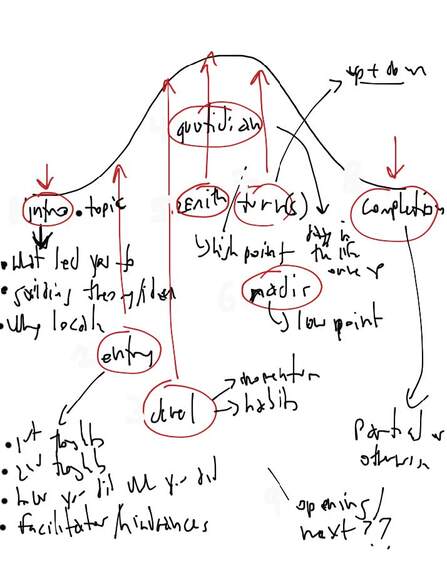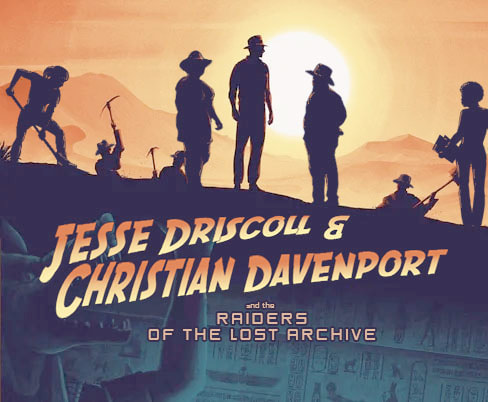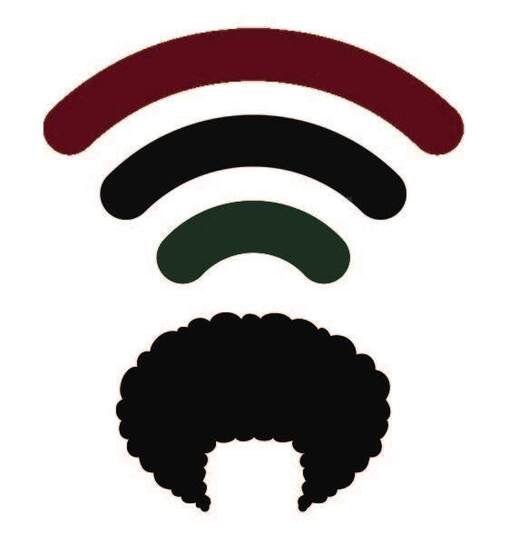Raiders of the Lost Archive (Third season under development)
Raiders of the Lost Archive is fundamentally about sharing stories behind the research that most inspires us. We invite social scientists to talk candidly about process and archive the stories.
On Spotify
On Podbean
On Amazon Music
Here is the webpage for the podcast.
Our Semi-Structured Interview(ish):
- What is the topic you were interested in examining initially for the research project that you were going to collect data on?
- Where were you trying to conduct research on and for what purpose (i.e., what theoretical/practical problem were you dealing with)?
- How were you going to go about collecting relevant research material and from where?
- What did you find upon arrival?
- How did you proceed to collect information – really?
- What troubles/opportunities did you encounter along the way?
- What was the most comical thing you encountered?
- What was the most tragic thing you encountered?
- How (if at all) did the project change after you started collecting your data?
- What did you end up investigating/understanding?
- How (if at all) did your experience influence your understanding of the research process in general and data collection in particular?
- What would you advise others who engage in data collection efforts?
Who Are These "Raiders"?
Most voices on this podcast series will be academic social scientists. For those who are not sure what this means: We are a community of careful readers and writers. We rely on original data to make arguments and try to change the world in small ways (though of course we have different theories about how to do this, do not always agree about what kinds of change are desirable, etc.). In this podcast, our goal is primarily entertainment for fellow-travelers. We want to facilitate informative conversations about processes of data collection. We also want to enliven the imagination of how things are actually done and to provide some food for the imagination about what could be. We want to know how our (s)heroes asked questions, where they got stuck, how they found their way to unexpected new kinds of synthesis, and what they remember.
Thus far: James Scott, Lisa Wedeen, Christian Davenport, Jesse Driscoll, Robert Bates, Jen Murtazashavili, Leonard Wanchetkon, Kanisha Bond, Sarah Cameron, Zachariah Mamphilly, Asfandyar Mir, Tariq Thacil
Coming: More on the way
On Spotify
On Podbean
On Amazon Music
Here is the webpage for the podcast.
Our Semi-Structured Interview(ish):
- What is the topic you were interested in examining initially for the research project that you were going to collect data on?
- Where were you trying to conduct research on and for what purpose (i.e., what theoretical/practical problem were you dealing with)?
- How were you going to go about collecting relevant research material and from where?
- What did you find upon arrival?
- How did you proceed to collect information – really?
- What troubles/opportunities did you encounter along the way?
- What was the most comical thing you encountered?
- What was the most tragic thing you encountered?
- How (if at all) did the project change after you started collecting your data?
- What did you end up investigating/understanding?
- How (if at all) did your experience influence your understanding of the research process in general and data collection in particular?
- What would you advise others who engage in data collection efforts?
Who Are These "Raiders"?
Most voices on this podcast series will be academic social scientists. For those who are not sure what this means: We are a community of careful readers and writers. We rely on original data to make arguments and try to change the world in small ways (though of course we have different theories about how to do this, do not always agree about what kinds of change are desirable, etc.). In this podcast, our goal is primarily entertainment for fellow-travelers. We want to facilitate informative conversations about processes of data collection. We also want to enliven the imagination of how things are actually done and to provide some food for the imagination about what could be. We want to know how our (s)heroes asked questions, where they got stuck, how they found their way to unexpected new kinds of synthesis, and what they remember.
Thus far: James Scott, Lisa Wedeen, Christian Davenport, Jesse Driscoll, Robert Bates, Jen Murtazashavili, Leonard Wanchetkon, Kanisha Bond, Sarah Cameron, Zachariah Mamphilly, Asfandyar Mir, Tariq Thacil
Coming: More on the way

The image above is Davenport's conception of the process from one's introduction to a topic, through going to a place and then returning to complete the project. From this, we crafted our instrument concerning intro, entry, development, quotidian/zenith experience, turns, nadir and project completion - not necessarily in that order.
Teaser
|
|
Episodes
Episode 1 - James Scott
Episode 2 - Lisa Wedeen
Episode 3 - Christian Davenport
Episode 4 - Jesse Driscoll
Episode 5 - Bob Bates
Episode 6 - Jen Murtazashvili
Episode 7 - Leonard Wantchekon
Episode 8 - Zachariah Mamphilly
Episode 9 - Tariq Thachil
Episode 10 - Asfandyr Mir
Episode 11 - Kanisha Bond
Episode 12 - Cynthia Enloe
Episode 13 - David Cunningham
Episode 14 - Sarah Cameron
Episode 15 - David Laitin
Episode 16 - Jesse Driscoll, part 2
Episode 17 - Christian Davenport, part 2
Episode 18 - Sarah Parkinson
Episode 19 - Margaret Levi
Episode 20 - Ana Bracic
Episode 21 - Kristine Eck
Episode 22 - Wendy Pearlman
Episode 23 - Who would you like?
Episode 2 - Lisa Wedeen
Episode 3 - Christian Davenport
Episode 4 - Jesse Driscoll
Episode 5 - Bob Bates
Episode 6 - Jen Murtazashvili
Episode 7 - Leonard Wantchekon
Episode 8 - Zachariah Mamphilly
Episode 9 - Tariq Thachil
Episode 10 - Asfandyr Mir
Episode 11 - Kanisha Bond
Episode 12 - Cynthia Enloe
Episode 13 - David Cunningham
Episode 14 - Sarah Cameron
Episode 15 - David Laitin
Episode 16 - Jesse Driscoll, part 2
Episode 17 - Christian Davenport, part 2
Episode 18 - Sarah Parkinson
Episode 19 - Margaret Levi
Episode 20 - Ana Bracic
Episode 21 - Kristine Eck
Episode 22 - Wendy Pearlman
Episode 23 - Who would you like?
A Pod Called Quest (Currently Paused)
A Pod Called Quest takes on everything that people concerned about injustice care about from the wealth gap to voting rights, to police brutality, to reparations, to health and well-being, to climate change, to state repression and much more. Together, Sage and Science want listeners to think with them about problems of injustice, just futures, and evidence-based solutions. Derrick Darby (aka Sage) is a philosopher. Christian Davenport (aka Science) is a political scientist and sociologist. Join our quest to impose logic as well as data on the struggle for justice in America and globally.
Here is the webpage for the pod(cast) where you can start the quest
Here is the webpage for the larger effort: doing the knowledge
Let (y)our journey begin!
Hit us up on twitter @doingknowledge or instagram doingtheknowledge with your thoughts or ideas for episodes. We are on this quest together.
Here is the webpage for the pod(cast) where you can start the quest
Here is the webpage for the larger effort: doing the knowledge
Let (y)our journey begin!
Hit us up on twitter @doingknowledge or instagram doingtheknowledge with your thoughts or ideas for episodes. We are on this quest together.
Teasers
|
|
|
|
|
MINDfields (Ended)
The MINDfields project is the brain child of Christian Davenport who has recruited partners in crime (Jacqueline DeMeritt, Will Moore, Ragnhild Nordas and Ernesto Verdeja) to conduct interviews with senior conflict, violence and peace scholars. The interviewees reflect on the trajectory of their research agendas during the arc of their careers, thus providing a unique perspective on conflict and peace research unavailable elsewhere.
Inspired in equal parts by Charles Tilly's concern that new generations of researchers enter the profession with limited appreciation and understanding of the intellectual past of conflict scholarship, the scholarly community's response to Tilly's passing in 2008, and the Iconoclasts series on Sundance Channel, MINDfields will continue to grow as we add interviews to this website.
Clear some time (interviews run roughly 35 to 60 minutes), get comfortable, and prepare to learn. We are confident you will enjoy these conversations. We begin with the topics of conflict (such as genocide, civil war, interstate war, civil protest, protest policing, terrorism, counter-terrorism, insurgency, counter-insurgency and everyday resistance) as well as peace (including negotiation, integration, communication) because of their continued importance in the world, as well as the increasing attention paid to these issues by scholars, activists and policymakers.
We Just Turn On The Camera, Ask Six Questions And Life Happens (More Or Less)
Inspired in equal parts by Charles Tilly's concern that new generations of researchers enter the profession with limited appreciation and understanding of the intellectual past of conflict scholarship, the scholarly community's response to Tilly's passing in 2008, and the Iconoclasts series on Sundance Channel, MINDfields will continue to grow as we add interviews to this website.
Clear some time (interviews run roughly 35 to 60 minutes), get comfortable, and prepare to learn. We are confident you will enjoy these conversations. We begin with the topics of conflict (such as genocide, civil war, interstate war, civil protest, protest policing, terrorism, counter-terrorism, insurgency, counter-insurgency and everyday resistance) as well as peace (including negotiation, integration, communication) because of their continued importance in the world, as well as the increasing attention paid to these issues by scholars, activists and policymakers.
We Just Turn On The Camera, Ask Six Questions And Life Happens (More Or Less)
- What research of yours are you most proud of?
- What led you to undertake the research project for which you are most widely known?
- Looking back at the evolution of the field over the course of your career, what do you think should have received more attention?
- Are there any approaches, theories, topics, etc. that you believe should have received less attention from the community?
- If you had done an interview like this when you were in mid-career, who would you have liked to interview?
- What do you think are the most exciting or promising areas in current research? Future research?
|
|
|
|
|


